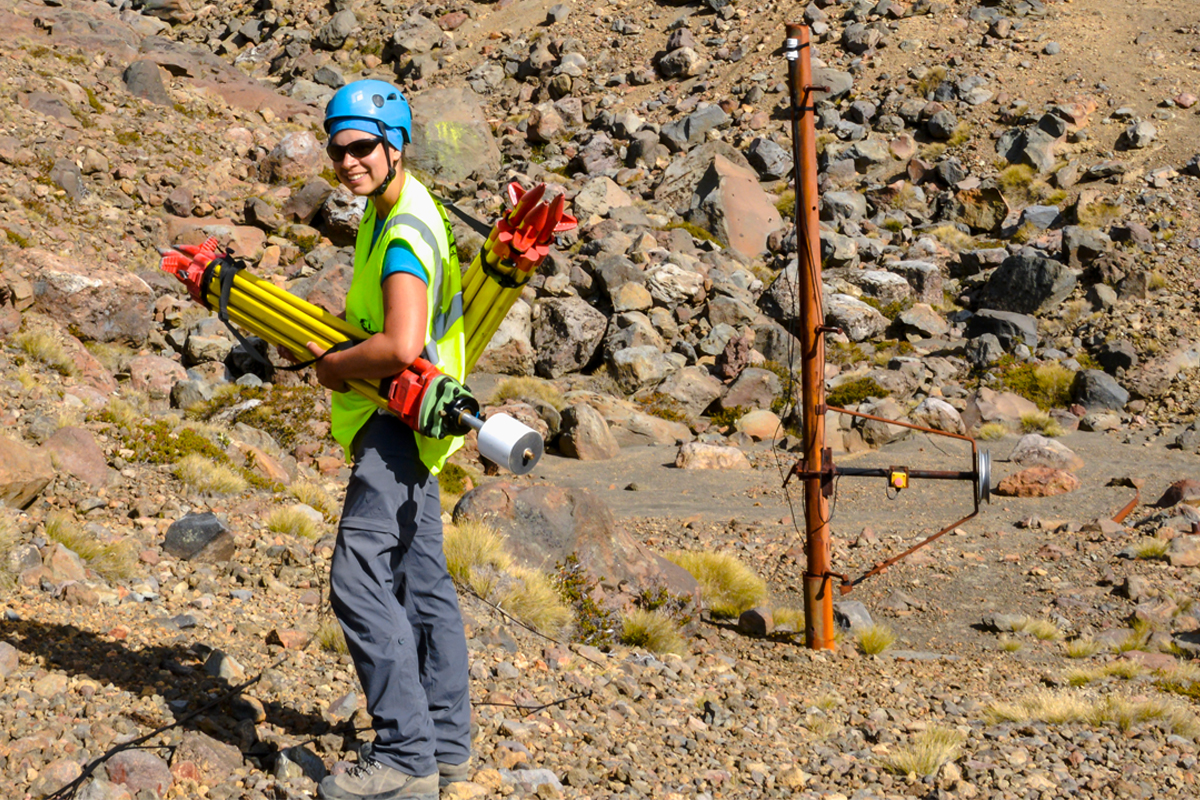All Categories
Featured
Table of Contents
Uses For Geophysical Data in Hamersley WA 2022

Other possible geophysicist majors that aren't geophysics or geoscience include: Climatic sciences and meteorology Chemical and physical oceanography Earth science Environmental science Hydrology and water resources science Products science By making any geophysicist degree, and by taking the required geology courses, you must get approved for an entry-level position as a geoscientist or geophysicist.
Ultimately, students must find out: a branch of geology that looks at the different aspects of minerals, consisting of chemical structure, internal crystal structure, and physical properties. the research study of rocks and the procedures and conditions that form and change them over time. There are a couple of subdivisions in this branch of geology, consisting of igneous, metamorphic, and sedimentary rocks.

This field analyzes structural rock features such as cleavage, faults, joints, and little folds. They need to also find out the computer abilities necessary to: analyze information develop digital designs and maps run geoscientists' software application Students need to also make the most of all chances to gain real-world experience. Aspiring geophysicists must expect to hang around learning: in the class in the field in labs Clearly, abilities taught in the class are extremely crucial for aspiring geophysicists.
Uses For Geophysical Data in Lakes Oz 2021
Geoscientists invest a lot of their time outside when working in the field, so they should have "outdoor skills" like outdoor camping and operating boats, aircraft, and other lorries. Since they spend a lot time in remote areas, it's essential that geophysicists also have the physical endurance to carry necessary equipment on their walkings to areas of research study.
The task provides: a high typical and leading incomes a high rate of individual fulfillment among geophysicists low work tension favorable task outlook Further details on profits potential and task outlook is detailed below. For students seeking to land an entry-level function as a geoscientist or geophysicist, it takes 4 years, or the time required to finish a bachelor's degree in geophysics or a related discipline.
Some research positions in geophysics need postgraduate degrees. Likewise, if you prepare to teach at a college or university, you must make a Ph - What Does A Geophysicist Do? in Mirrabooka Western Australia 2020. D. in geophysics or an associated field. The time it takes to earn a Ph. D. differs by organization and program, but it usually takes 4 to six years beyond the bachelor's degree.
Hydrographic And Geophysical Surveys in Ocean Reef Aus 2023
Many employers require candidates to have a bachelor's degree in geophysics or a carefully related discipline for all entry-level positions. And, in some cases, employers need a master's degree. As a result, there's no other way around the degree requirements for ending up being a geophysicist. A lot of companies will expect or require a practicing geologist to be accredited for positions beyond those at the entry level.
Currently, 31 states require licensing for geologists, although licensing is not always required, particularly for entry-level work. The states that do problem licenses use the Fundamentals of Geology Test (FGE), which is administered through the National Association of State Boards of Geology (ASBOG). Now that you know which degree for geophysicist jobs you need, you'll require to land a task, and it is necessary to find out just how much cash you can make in this career.
According to BLS, the mean annual wage for geoscientists is $93,580. According to BLS, certain markets provide higher wages for geoscientists, and in some cases, they offer higher-than-average incomes.
Geophysical Surveys For Petroleum in Helena Valley Western Australia 2020
In reality, mining, quarrying, and oil and gas extraction provides over $32,000 more every year than the typical yearly wage for this profession. The federal government, too, offers over $10,000 more in earnings than the national average for geoscientists. In addition to market type, geographical location can greatly affect profits for this profession.

The top-paying states and their yearly mean earnings, according to the BLS, consist of: Texas $166,720 Oklahoma $149,630 Pennsylvania $120,590 Hawaii $120,130 Colorado $107,260 These 5 top-paying states use much greater salaries than the average for this profession. In reality, salaries for geoscientists in Texas are over $73,000 higher than the national average.
It should come as not a surprise that the majority of these high-paying locations remain in Texas and Oklahoma, but some are discovered in California, Louisiana, and Colorado. The leading 10 highest-paying city locations for geoscientists are: Houston-The Woodlands-Sugar Land, Texas: $188,400 Tulsa, Oklahoma: $186,490 Midland, Texas: $167,040 Odessa, Texas: $147,080 Oklahoma City, Oklahoma: $145,350 Bakersfield, California: $130,080 Urban Honolulu, Hawaii: $124,470 New Orleans-Metairie, Louisiana: $121,030 Washington-Arlington-Alexandria, DC, VA, MD, WV: $120,180 Denver-Aurora-Lakewood, Colorado: $116,910 For some geoscientists and geophysicists, residing in a metro city is not as appealing as living in a smaller community.
Latest Posts
What Geophysicists Do in Iluka WA 2023
Geophysical Survey Definition in Casaurina Oz 2021
Geology And Geophysics - Careers And Employment in Manning Aus 2022